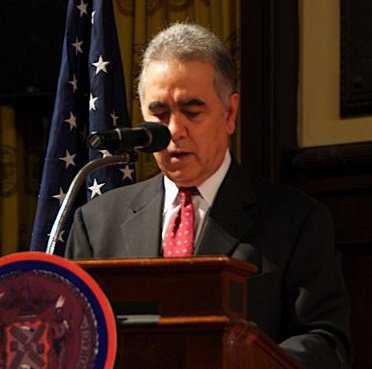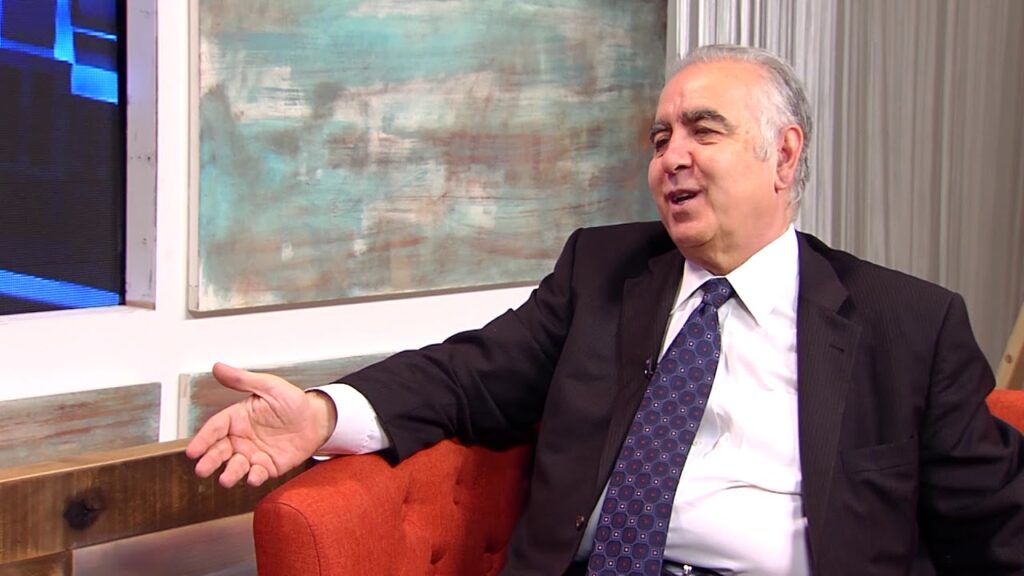
Pres. Serzh Sargsyan delivered a major speech in Marseille, France, last week, during which he introduced a new strategy for the resolution of Armenia’s demands from Turkey. Until now, the Armenian government had merely pursued the recognition of the Armenian Genocide.
For the first time, the President spoke about Armenia’s demand for “justice.” To ensure that his message was received loud and clear, he repeated the word “justice” three times in three separate sentences:
— “Every Armenian demands justice, whether he or she lives in Armenia, Artsakh or the Diaspora.”
— “We were strong enough to survive the Meds Yeghern [Great Calamity], and we are just as strong now to demand justice.” The President used the term “Armenian Genocide” six times in other parts of his speech.
— “That was the joyful news for justice, not revenge,” Pres. Sargsyan stated, describing the joy of Marseille Armenians in 1921, when they heard the acquittal of Soghomon Tehlirian, Talat’s assassin, by a German court.
Surprisingly, not a single political commentator in Armenia, Turkey or elsewhere took note of the significant shift in the approach articulated by Pres. Sargsyan. Seeking “justice” for the victims of genocide is a completely different objective than simply attaining recognition. In this context, the word “justice” encompasses the undoing of as much of the damage as possible, by demanding the restitution and return of all looted assets, confiscated properties, and occupied territories.
While advancing a more comprehensive set of demands from Turkey, Pres. Sargsyan expressed his conviction that the day would come when Turkey’s leaders would acknowledge the mass crimes committed by their predecessors: “We are confident that Turkey will repent. That is neither a precondition nor a desire to exact revenge. Turkey must face its own history. Someday, Turkey’s leadership would find the strength to reassess its approach to the Armenian Genocide. Our position has not changed — it is clear cut. We are prepared to establish normal relations with Turkey, befitting neighboring countries. For example, neighboring countries Poland and Germany led by Chancellor Willy Brandt, acknowledging his country’s terrible crimes, dropped to his knees at the Warsaw Ghetto. Sooner or later, Turkey, a self-described European country, will have a leadership worthy of being called European, which will bow its head at the Tsitsernagapert [Genocide] Memorial. The sooner the better, but, that’s the prerogative of the Turkish people. We cannot impose anything on them. They should do that for the sake of the Turkish people, just as Willy Brandt did for the sake of the German people.”
Egemen Bagis, Turkey’s Minister for European Union Affairs, perhaps not comprehending the far reaching consequences of Pres. Sargsyan’s demand for “justice,” reacted angrily to other parts of the Armenian President’s remarks. Bagis arrogantly stated: “There is no power in the world that could bring the Turkish people to its knees. On the contrary, the Turkish people know full well how to bring to their knees those who make such ill-informed statements.”
I fully endorse Pres. Sargsyan’s new approach to the pursuit of Armenian demands from Turkey. Through my columns, speeches, interviews, and private meetings, I have repeatedly urged Armenia’s leaders to demand “justice” from Turkey, rather than simply seeking genocide recognition. One of my articles on this topic, “Genocide Recognition and Quest for Justice,” was published last year in The International & Comparative Law Review of the Loyola Law School of Los Angeles.
Armenia is better off presenting its claims from Turkey in terms of seeking “justice,” to avoid the danger of making official territorial demands from a powerful and menacing neighbor. Nevertheless, the demand for “justice” is a code word or shorthand for a comprehensive set of claims from Turkey. Not even Turkey’s denialist leaders would dare challenge the universally-accepted notion of “justice” based on the rule of law, specifically, international law.
While Pres. Sargsyan’s remarks in Marseille are highly commendable, it remains to be seen how this newly articulated concept of seeking justice for the Armenian Genocide will be translated into action. What practical steps will the Armenian government, particularly the Foreign Ministry, take to demand justice from Turkey? Will Armenia back the lawsuits filed by Diaspora Armenian communities in American and European courts against Turkey, demanding restitution for Armenian losses during the Genocide or will Armenia bring its own lawsuit against the Republic of Turkey in the World Court?
